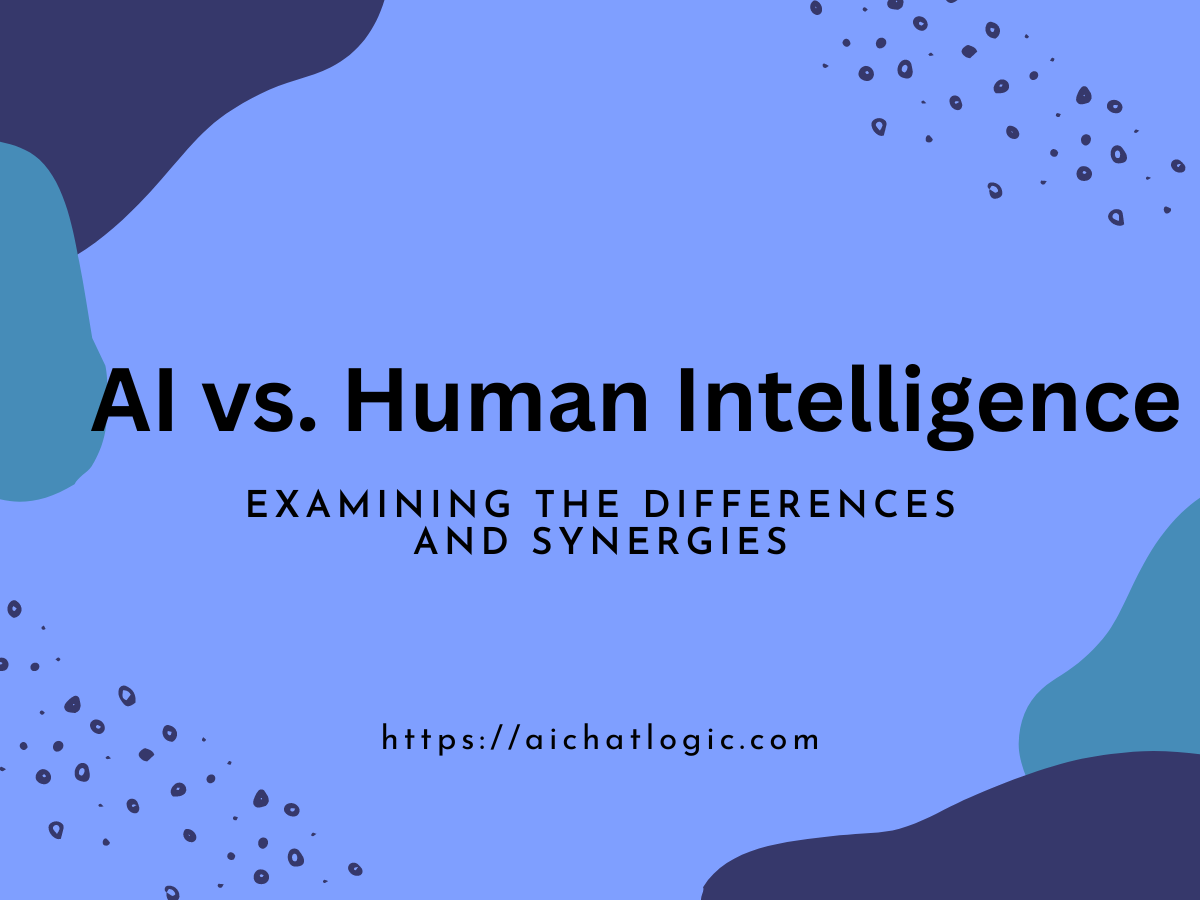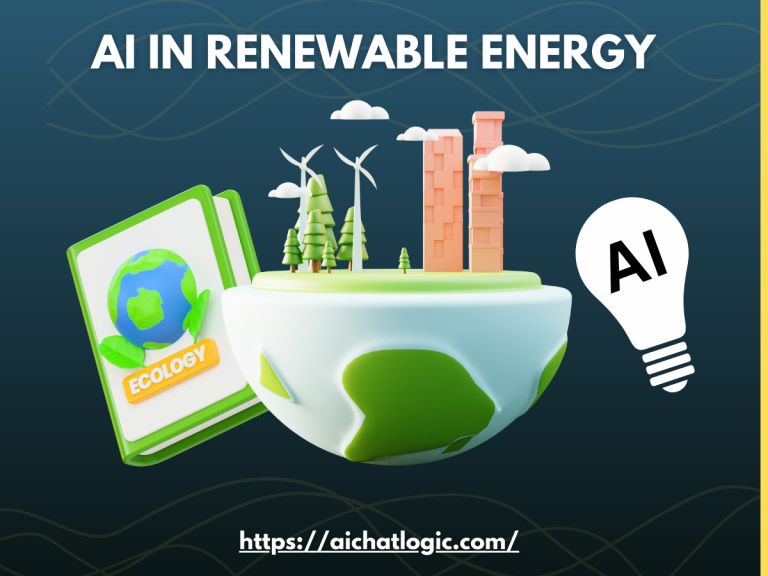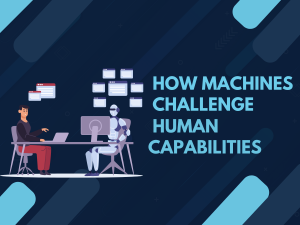1. Introduction: Understanding AI and Human Intelligence
In the realm of intelligence, two distinct forces have emerged in recent times: Artificial Intelligence (AI) and Human Intelligence. While AI represents the advancements in machine learning and computational algorithms, human intelligence encapsulates the multifaceted cognitive abilities possessed by individuals. This article aims to explore the differences and synergies between AI and human intelligence, shedding light on their respective strengths and how they can coexist harmoniously.
2. The Nature of Artificial Intelligence
2.1 Defining Artificial Intelligence
Artificial Intelligence refers to the development of computer systems capable of performing tasks that typically require human intelligence. It involves the creation of algorithms and models that enable machines to process information, reason, learn, and make decisions. AI can be categorized into two main forms: Narrow AI, which focuses on specific tasks, and General AI, which aims to exhibit human-like intelligence across various domains.
2.2 Machine Learning and Deep Learning
Machine Learning (ML) is a subset of AI that empowers machines to learn and improve from data without being explicitly programmed. Deep Learning, on the other hand, is a specialized form of ML that utilizes artificial neural networks to analyze and understand complex patterns and relationships within data. Deep Learning has enabled significant advancements in various fields, including natural language processing, computer vision, and speech recognition.
2.3 Limitations of AI
While AI has made remarkable progress, it still faces certain limitations. AI systems heavily rely on vast amounts of data for training and may struggle in scenarios with limited or biased datasets. Additionally, AI lacks the nuanced understanding and common sense reasoning capabilities that come naturally to humans. Ethical concerns, privacy issues, and the potential for bias in AI decision-making processes also need careful consideration.
3. Human Intelligence: A Complex Cognitive Ability
3.1 Defining Human Intelligence
Human intelligence encompasses the diverse range of cognitive abilities exhibited by individuals, including reasoning, problem-solving, creativity, and emotional intelligence. Humans possess a unique capacity for abstract thinking, complex decision-making, and the ability to understand and generate creative and innovative ideas.
3.2 The Power of Human Creativity
Creativity is a distinct aspect of human intelligence that sets us apart from AI systems. Human creativity enables us to think beyond existing patterns, invent novel solutions, and make groundbreaking discoveries. The ability to combine disparate ideas, imagine new possibilities, and express oneself artistically are intrinsic to human intelligence.
3.3 Emotional Intelligence
Emotional Intelligence (EI) is another critical facet of human intelligence. It involves the capacity to recognize, understand, and manage emotions—both one’s own and those of others. EI plays a fundamental role in interpersonal relationships, empathy, and social interactions, which are integral to various aspects of human life.
4. AI and Human Intelligence: Key Differences
4.1 Processing Power and Speed
One of the notable differences between AI and human intelligence lies in processing power and speed. AI systems can process vast amounts of data and perform computations at incredible speeds, surpassing human capabilities in many domains. However, humans possess a qualitative depth of understanding and can make complex judgments and decisions that go beyond raw computational power.
4.2 Contextual Understanding
While AI systems excel at processing and analyzing large volumes of structured and unstructured data, they often struggle with contextual understanding. Humans possess the ability to perceive subtle cues, interpret ambiguous information, and understand the nuances of language and social interactions. Contextual comprehension allows humans to make informed decisions, adapt to dynamic situations, and respond to diverse perspectives.
4.3 Adaptability and Learning
Human intelligence showcases remarkable adaptability and learning capabilities. Humans can quickly acquire new skills, adjust to changing environments, and generalize knowledge from one domain to another. AI systems, although capable of learning from data, require extensive training and may struggle with transferring knowledge to different contexts without explicit instructions.
4.4 Empathy and Social Interaction
Empathy, a vital aspect of human intelligence, involves the ability to understand and share the emotions of others. Human interaction is deeply rooted in empathy, allowing individuals to build meaningful connections, demonstrate compassion, and navigate complex social dynamics. While AI systems can simulate certain aspects of empathy, they lack the genuine emotional understanding and personal experiences that underpin human interactions.
5. Synergies between AI and Human Intelligence
5.1 AI as a Tool to Enhance Human Abilities
AI can be harnessed as a tool to augment and enhance intelligence. By automating repetitive and mundane tasks, AI frees up resources to focus on higher-level cognitive functions such as problem-solving, innovation, and creativity. Leveraging AI technologies alongside intelligence can lead to improved productivity, efficiency, and overall performance across various industries.
5.2 Collaboration and Coexistence
Rather than viewing AI and intelligence as competing forces, fostering collaboration and coexistence between the two can yield transformative results. AI systems can provide valuable insights, data analysis, and decision support, while individuals contribute their contextual understanding, creativity, and emotional intelligence. Together, AI and intelligence can address complex challenges, innovate, and propel society forward.
5.3 Ethical Considerations and Responsible AI
As AI continues to evolve, ethical considerations become paramount. Responsible development and deployment of AI systems ensure transparency, accountability, and fairness. It is crucial to establish ethical guidelines and regulations to prevent biases, ensure privacy, and mitigate potential risks associated with AI. Human oversight and ethical decision-making frameworks are essential to guide the development and utilization of AI technologies.
6. The Future of AI and Human Intelligence
The future of AI and intelligence holds immense potential. As AI technologies advance, they will become increasingly integrated into our daily lives, transforming various industries and sectors. Intelligence will continue to drive innovation, creativity, and social connections, complemented by AI’s ability to process vast amounts of data and provide valuable insights. Striking a balance between AI and intelligence will be crucial to shaping a future that harnesses the strengths of both.
7. Conclusion
In conclusion, the comparison between AI and intelligence reveals distinct differences and potential synergies. AI systems excel in processing power, speed, and data analysis, while intelligence showcases contextual understanding, adaptability, creativity, and emotional intelligence. By leveraging AI as a tool and embracing collaboration, individuals can augment their abilities and capitalize on the strengths of AI. The responsible and ethical development of AI will pave the way for a future where AI and intelligence coexist harmoniously, driving innovation, progress, and societal well-being.
FAQs
Q1. Can AI completely replace human intelligence? AI is unlikely to completely replace human intelligence. While AI systems excel in specific tasks, human intelligence encompasses a broad range of cognitive abilities, including creativity, emotional intelligence, and contextual understanding, which are challenging to replicate.
Q2. How can AI enhance human productivity? AI can enhance human productivity by automating repetitive tasks, analyzing vast amounts of data, and providing valuable insights and decision support. This allows humans to focus on higher-level cognitive functions, such as problem-solving and innovation.
Q3. What are some ethical considerations in AI development? Ethical considerations in AI development include addressing biases in algorithms, ensuring transparency and accountability, protecting privacy and security, and mitigating potential risks associated with AI decision-making processes.
Q4. How can humans and AI collaborate effectively? Humans and AI can collaborate effectively by leveraging AI as a tool to enhance human abilities. AI systems can provide data analysis and decision support, while humans contribute contextual understanding, creativity, and emotional intelligence.
Q5. What is the future of AI and human intelligence? The future of AI and human intelligence lies in a symbiotic relationship, where AI technologies augment human abilities rather than replace them. Striking a balance between AI and human intelligence will be crucial for shaping a future that maximizes the strengths of both.












+ There are no comments
Add yours